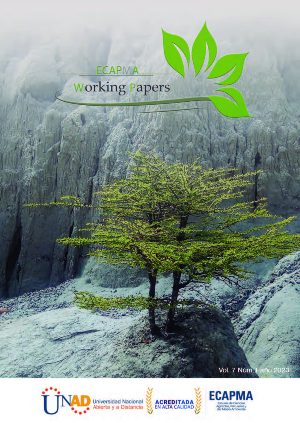Efectos de la inclusión dietética de subproductos de babasú sobre el metabolismo ruminal de ovinos y sobre la composición química de la leche y la carne producidas por bovinos: una breve visión general en el contexto brasilero
Antecedentes: En la actualidad, existe una constante demanda de alimentos que puedan sustituir a los tradicionalmente utilizados (soja y maíz) en el mercado en la nutrición de los animales de granja. Así, se han realizado varios estudios, explorando alimentos alternativos. Uno de estos alimentos es el fruto de la palma babasú, que genera varios subproductos con potencial uso en la alimentación de rumiantes. Vacío de conocimiento: Existe la necesidad de un mayor número de informaciones en relación con la composición y los efectos biológicos de subproductos derivados de la fruta de babasú en la nutrición de los rumiantes. Propósito: El presente estudio tuvo como objetivo revisar la literatura con el fin de presentar hallazgos relacionados con los efectos de la inclusión de subproductos del fruto del babasú sobre los parámetros ruminales y el comportamiento ingestivo de ovinos, así como la calidad de la leche y la carne en bovinos. Metodología: Se realizó una revisión bibliográfica, resumiendo las principales referencias con relación a los efectos de la inclusión de subproductos del fruto del babasú sobre la nutrición de ovinos y calidad de producto derivados de bovinos. Resultados y conclusiones: La revisión reveló que los subproductos del babasú tienen características nutricionales compatibles con los alimentos utilizados convencionalmente en la nutrición de rumiantes. El subproducto de babasú más abundante en los estudios encontrados fue la HMB (harina de mesocarpio de babasú), un subproducto rico en almidón y ampliamente utilizado en la nutrición de ovinos y bovinos. La presente revisión también reveló que la inclusión de subproductos de babasú debe hacerse con precaución en las dietas de los rumiantes, y que estos pueden conferir características deseables en la carne y la leche del ganado.






